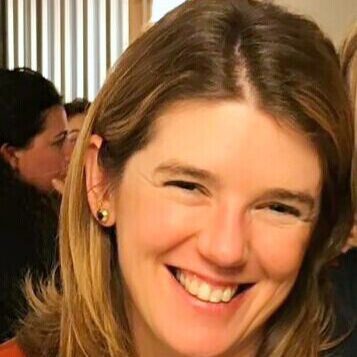In this edition of “Meet the members”, we interview Belén Perez Dueñas, pediatric neurologist at Hospital Vall d’Hebrón in Barcelona, Spain. She will tell us a bit more about her work in the hospital, within ERN-RND and her expectations for the network.
1. What is your profession (department, affiliation, etc.) and your medical expertise or specific field of interest/why?
I am a scientist and pediatric neurologist at Hospital Vall d’Hebrón in Barcelona. At the Pediatric Neurology Department, we are a national-leading group committed to provide the best care to children with complex neurological conditions, and to apply research and innovation to clinical healthcare.
I have been a pediatric neurologist since 2006. From the beginning, I was interested in rare metabolic and genetic conditions causing developmental delay, neurological deterioration and complex motor disorders. I have led several multi-center projects on inborn errors of metabolism, vitamin sensitive encephalopathies, neurodegeneration with brain iron accumulation disorders, mitochondrial disorders and genetic dystonia. In recent years, I have set up a Pediatric Neuromodulation Unit for the treatment of children with movement disorders. Our knowledge on metabolic and genetic conditions causing different types of dystonia, combined with our experience with deep brain stimulation, has allowed us to identify and operate best candidates from all over the country, achieving good results on efficacy, safety, and quality of life.
2. What do you like most about your work and what is the biggest challenge specially in regards to working on rare diseases?
My goals as a scientist and pediatric neurologist dealing with rare conditions are to provide an accurate diagnosis, avoid isolation to patients and families, and offer the best personalized therapeutic interventions. The best way to achieve these results is to combine clinical and research work, and to collaborate with other professionals in the same objectives at national and international networks.
3. How do you participate in ERN-RND?
Together with Tobias Bäumer and Giovanna Zorzi, we coordinate the Group on Dystonia, Paroxysmal Disorders and Neurodegeneration with Brain Iron Accumulation Disorders.
4. What are your expectations for the network?
To share our knowledge on childhood onset rare neurological diseases, and to collaborate in best clinical practice guidelines, patients’ registries, educational activities and European research projects on this field.
5. How do you think patients and clinicians can work together/why do you think it is important?
Any research model in rare genetic diseases should include the collaboration with patient associations. Children with movement disorders are affected by severe language, motor and neuropsychiatric problems that may cause severe disability. Therefore, families are highly motivated to improve their children’s health care and to support research actions. In our country, we have contributed to the identification of a high number of children with rare neurological conditions through collaborative research projects with Patients Advocacy Associations. Also, we have organized mixed family and professional meetings to empower patients and reduce isolation, and to disseminate clinical and research activities.
You are an ERN-RND full member or affiliated partner and would like to participate? Please contact us.

